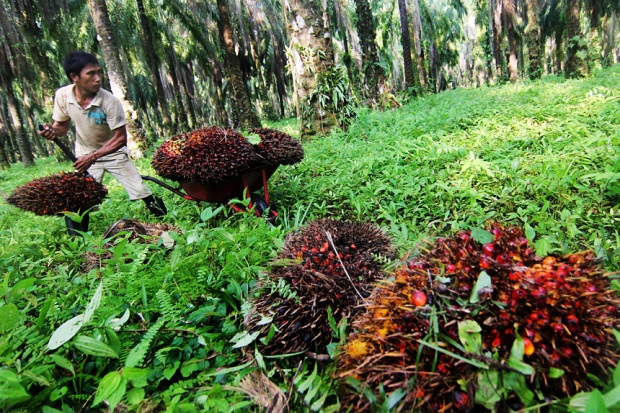Looking at Peatlands through a Different Lens
By Nadine ZamiraCompany Efforts on Peatland Management
There are several company commitments related to sustainable peatland management, such as the Sustainability Forest Management Policy (APRIL GROUP), Forest Conservation Policy (Asia Pulp and Paper), and No Deforestation, No Peat, No Exploitation Policy (Wilmar, Musim Mas, Golden Agri Resources, Royal Golden Eagle, Salim Group, etc.).
Moreover, the companies are also voluntarily committed to increasing market reach through various certification systems, such as:
1. Forest Stewardship Council (FSC)
FSC certification assures that the products come from well-managed forests that provide environmental, social, and economic benefits. FSC developed 2 types of certification systems:
- Forest Management Certification. This certification ensures that forest management practices carried out by concession managers or landowners have complied with responsible forest management standards, which is having a balance of environmental, social, and economic aspects.
- Chain of Custody Certification (applies to producers, processors, and traders of FSC-certified forest products). Chain of custody certification ensures that the wood raw materials come from FSC-certified forests and FSC raw materials are not mixed with other uncertified raw materials along the production chain.
2. Indonesian Forestry Certification Cooperation (IFCC)
IFCC is a non-profit organization that aims to encourage and improve sustainable forest management in Indonesia, through the application of forestry certification as a benchmark for sustainable forest management based on the Programme for the Endorsement of Forest Certification (PEFC). The PEFC/IFCC label proves that the products are made of raw materials that come from sustainably managed forests.
3. Roundtable on Sustainable Palm Oil (RSPO)
RSPO is a non-profit association that brings together stakeholders from seven sectors of the palm oil industry, i.e. palm oil producers, palm oil processors/traders, consumer goods producers, retailers, banks/investors, environmental NGOs, and social NGOs. The aim is to promote sustainable palm oil production practices that help reduce deforestation, conserve biodiversity, and value the lives of rural communities in palm oil-producing countries.
RSPO ensures that no new primary forest or other areas with high conservation value are sacrificed for oil palm plantations, that plantations adopt accepted best practices, and that the basic rights and living conditions of millions of plantation workers, smallholders, and indigenous peoples are fully respected.
The Roundtable has created two certification systems based on the RSPO Principles & Criteria: one to ensure that palm oil is produced sustainably, and one to ensure the integrity of sustainable palm oil trade where palm oil sold as sustainable oil matches the palm oil produced in certified plantations.*
*THIS ARTICLE WAS PREVIOUSLY PUBLISHED ON 3 JUNE 2021 ON ONLINE MEDIA TEMPO.CO




